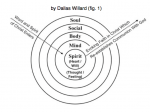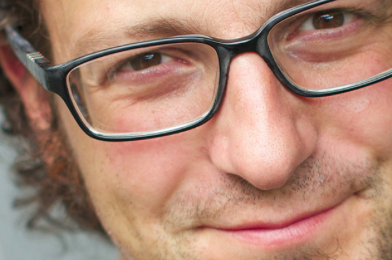
My guest is a young man who reflects the mission of this project called Spark My Muse. That mission is to be the spark of light and love I (and we) want to see the world.
If that’s a mission you can support, please spread the word about what’s happening here and contribute a little bit to help me meet the financial burden of keeping this effort going.
Please to help today.
Do that HERE.
Podcast: Play in new window | Download (66.8MB) | Embed
Subscribe to Spark My Muse Apple Podcasts | Spotify | Email | TuneIn | RSS | Subscribe to Spark My Muse
Usama Awan is a medical Student at Ohio State and a Ahmadiyya Muslim that escaped religious persecution in his native Pakistan with his family when he was a young boy.
Contact him here: muslimperiscope@gmail.com
On Twitter @MuslimPeriscope
Ahmadiyya muslims are a moderate minority sect in the Muslim world and they believe their messiah came already.
The Messiah of the Ahmadiyya sect was Hazrat Mirza Ghulan Ahmad. He was a teacher and he was not divine.
Ahmadiyya believe in an established Khilafat is not a physical dominion but a dominion of the heart.
The website about his sect of Islam
http://www.alislam.org
2:30
Usama addresses some misconceptions about Islam.
About his wanting to change the perception of Muslims by going live on Periscope to answer questions.
3:40
Usama’s story of leaving Pakistan because of religious persecution.
His sect believes in a Messiah of Muslims (who died in 1908) and this belief makes his sect targets for persecution from other Muslims in the Muslim world.
6:00
Current leader (the Caliph) is Hadhrat Mirza Masroor Ahmad and lives in London. He advocates for peace.
8:00
About the belief in Jesus by Muslims.
Three goals of the Muslim Messiah:
1. Revive the teachings of Islam and bring Muslims back to the true teachings of Islam
2. To spread the truth about religion and to get humankind back to its Creator
3. To unite all religions
10:30
Worshipping the one true God and Creator.
Allah means God in Arabic. Arab Christians refer to God is Allah because it is the word for God.
12:00
Some of God’s attributes.
13:00
How names summarize us poorly.
14:00
God as male?
15:00
What Islam is not:
Terrorism is forbidden.
Life is precious, no matter the faith belief of the person.
19:30
Asking Usama, “Do you think most Muslims understand the truth?”
1.6 billion Muslims in the world but most have lost the true teachings of Islam–like a body without a beating heart.
The Muslim Messiah is there to get the heart of Islam to beat again.
20:40
The Quran is (usually) misunderstood. It is written in parables and must not be taken literally in ways that it is commonly.
The Calif (leader) is the ultimate authority on the Islamic teachings and there to resolve disputes.
23:00
What is the same about people is far more than what is different.
23:30
The big curveball question:
Was Mohammad violent and in favor of killing unbelievers?
The wars of Mohammad and were they fought in self-defense?
24:00
How the wars in (pagan/polytheistic) Mecca started around 610 AD.
Mohammad moves to Medina and the faith starts to spread.
27:00
Book by Karen Armstrong the life of Mohammad as a historical figure.
https://en.wikipedia.org/wiki/Karen_Armstrong
A history of God
The religious context in Mecca: It was pagan and in the city of Medina there were some Jews.
28:00
The Kaaba, the black box, in Mecca was surrounded by idols and worshiped in a yearly pilgrimage.
 29:00
29:00
Religious or spiritual figures are reviled by those in power (Moses, Jesus, etc.)
30:00
The economic factors that cause wars throughout history.
30:30
Abraham and his son Ishmael.
31:00
The Quran says that Abraham is told by God to leave to go to Mecca and leave Ishmael and his mother to make a great nation.
32:00
The family fight in the Middle East.
33:00
Exclusive truth is claimed by both Christianity and Islam and what can we do about it?
35:00
Usama says that his sect of Islam does not claim to have the only way to God. Many prophets have come over time and have told God’s truth.
36:00
The return of God is a message in every culture.
37:00
Answers the question: What’s the point of being a Muslim if all paths get to God?
The Five Pillars (of Islam) help you lead a godly life.
38:00
Jihad means to struggle and keep Satan away.
39:00
The Grace of God. Prayer helps us but it is not for God’s benefit or to get his favor. It establishes a link to God.
When people ask, “If God exists why doesn’t he just show himself?”
Belief is to hone in on “spiritual frequency”.
41:00
Worshiping God in Spirit and in Truth.
(from Lisa) Christians sometimes think of God as a Christian or of Jesus as a Christian.
44:00
Finding common ground to love the world as God wants us to.
Conversations. Service projects. Work together. Volunteer together.
Protecting each other and respect each other and focus on the common ground.
Mary the mother of Jesus is revered in Islam.
46:00
To serve God and bring glory to God we need to bring peace and love into the world together.














